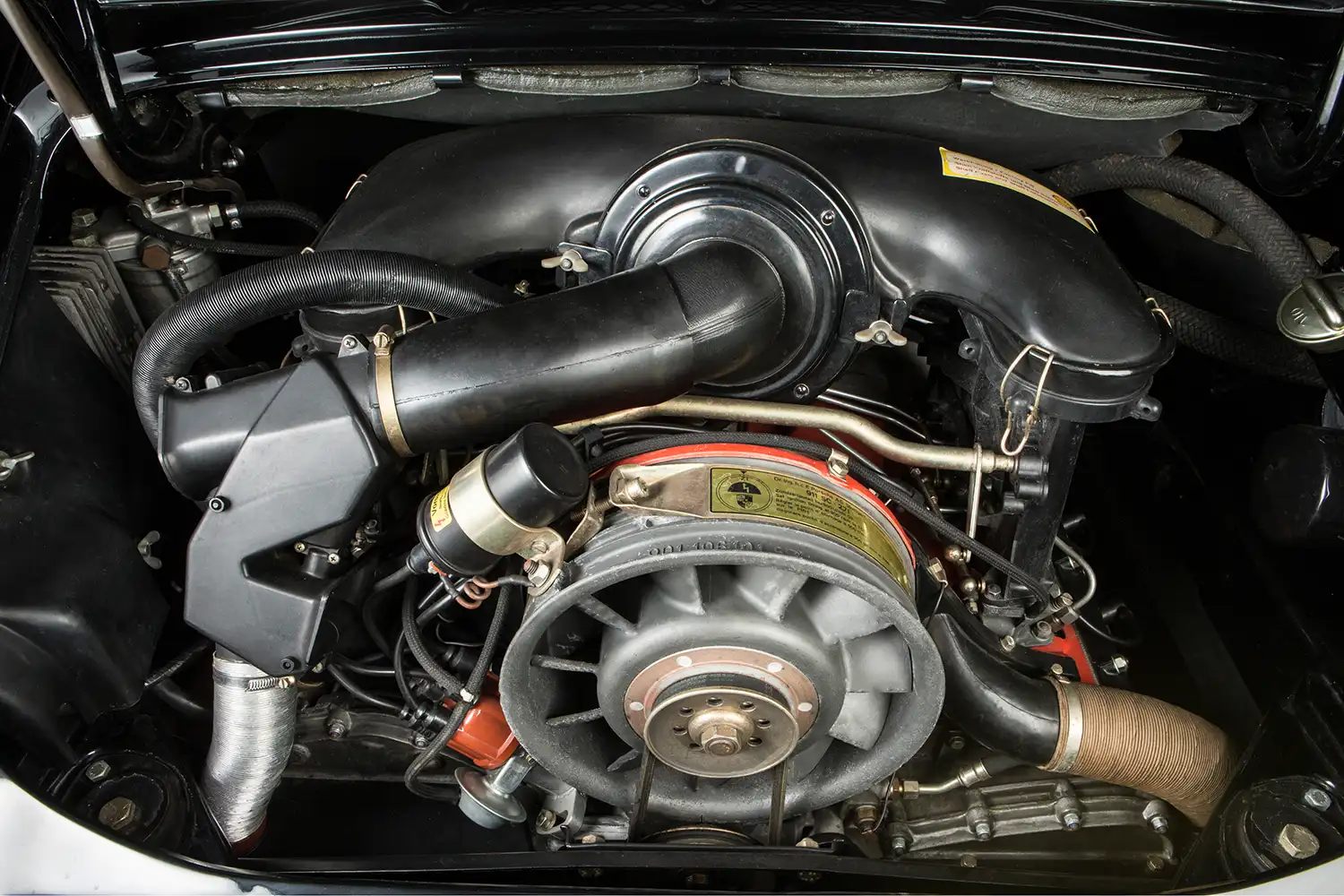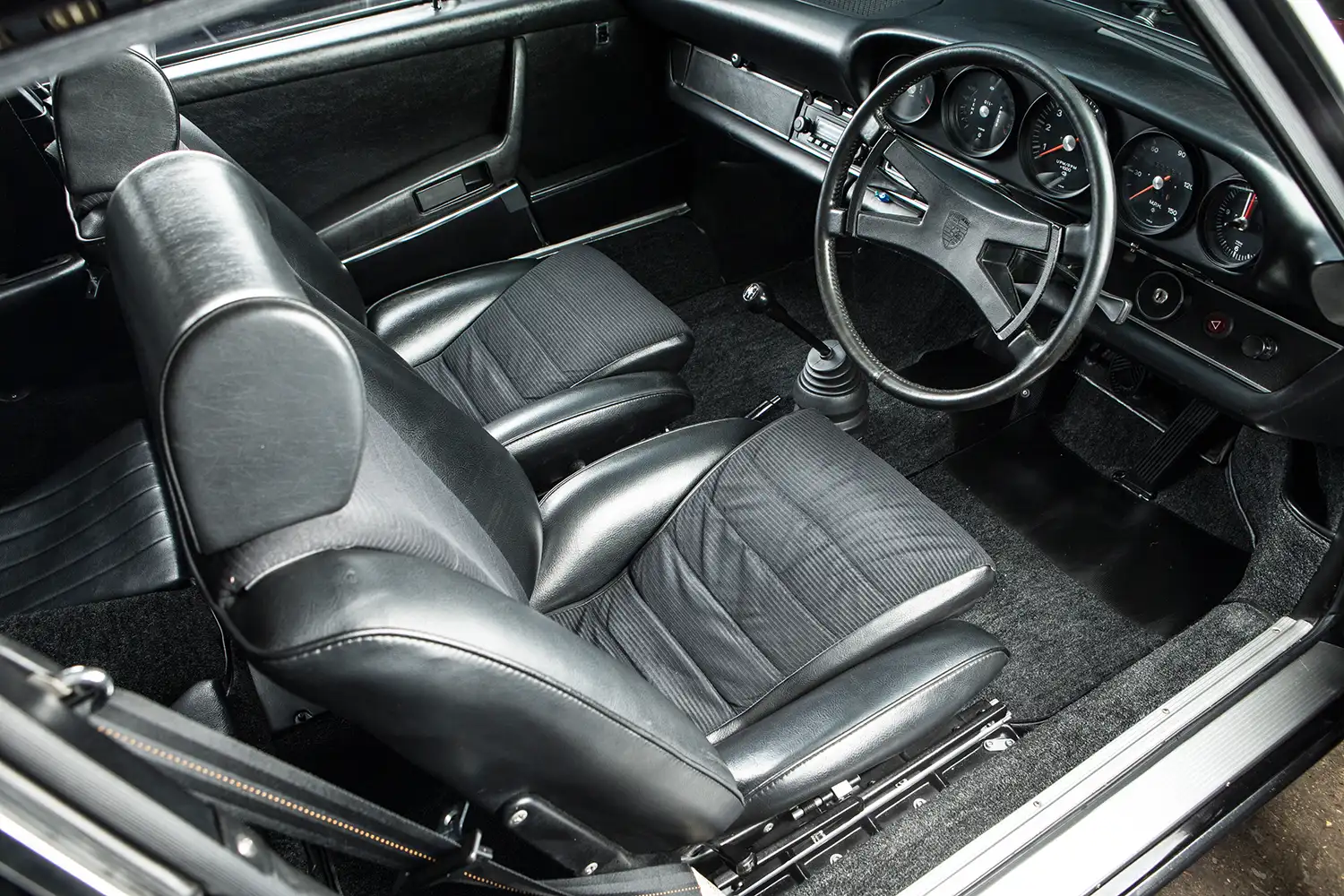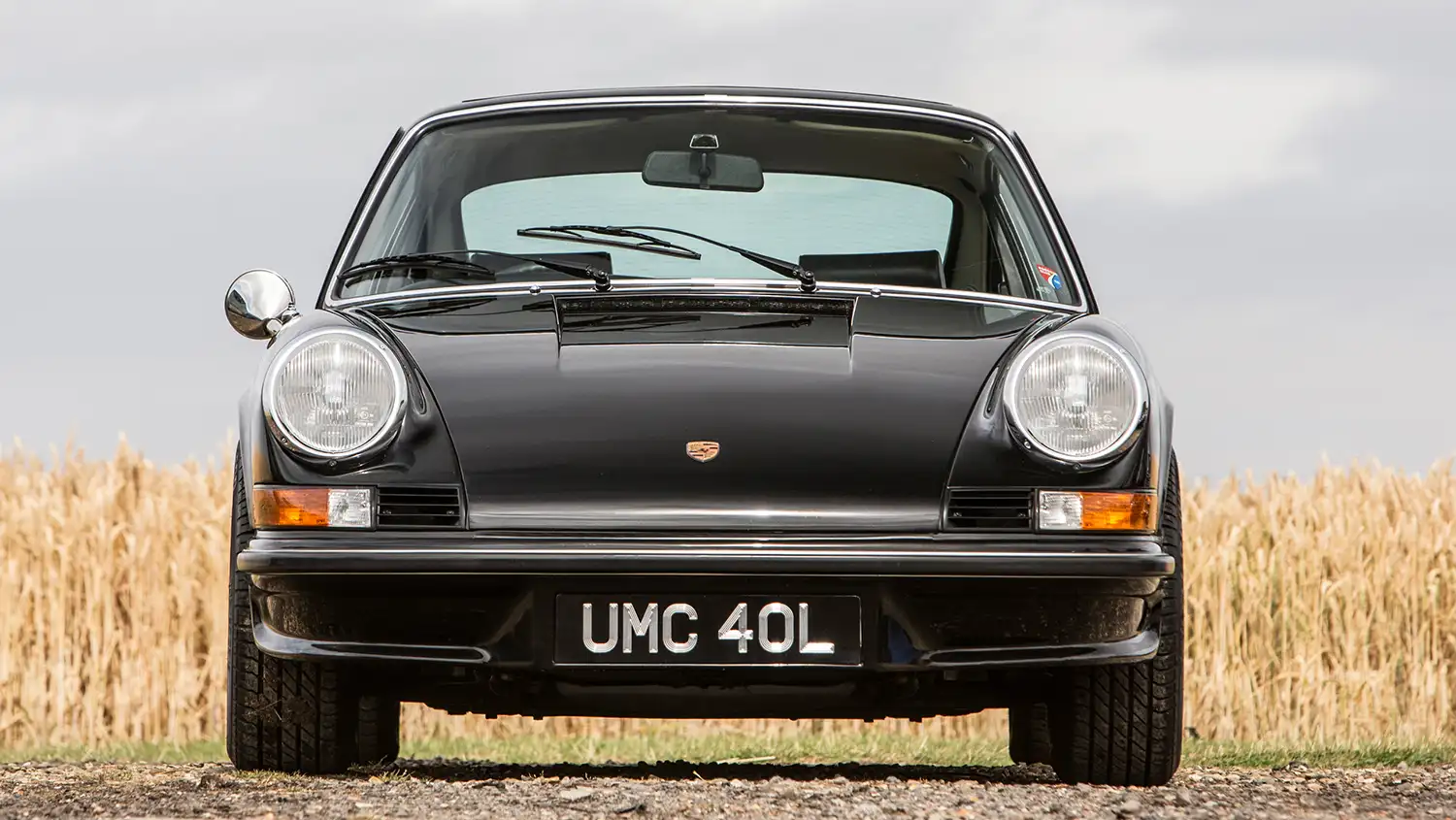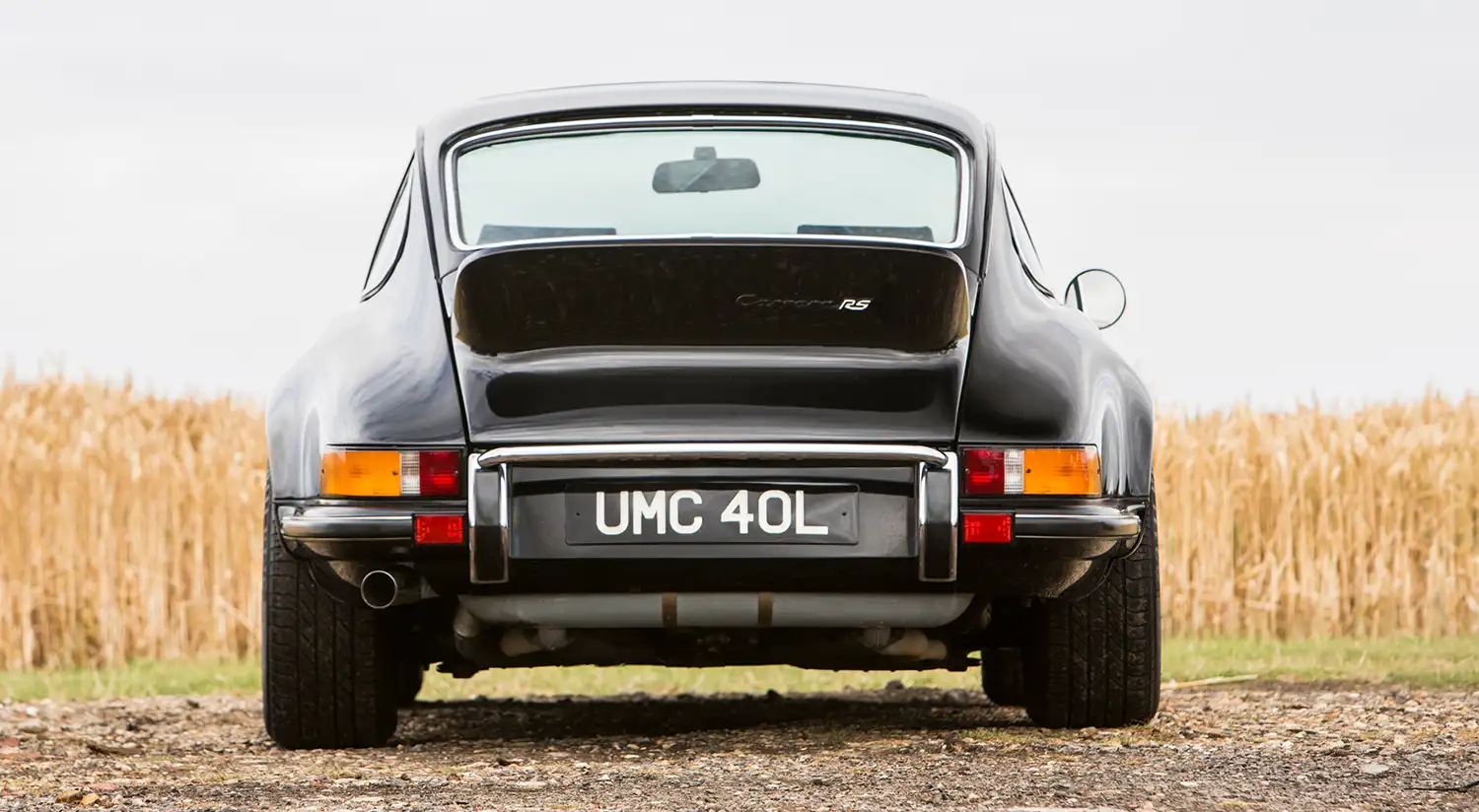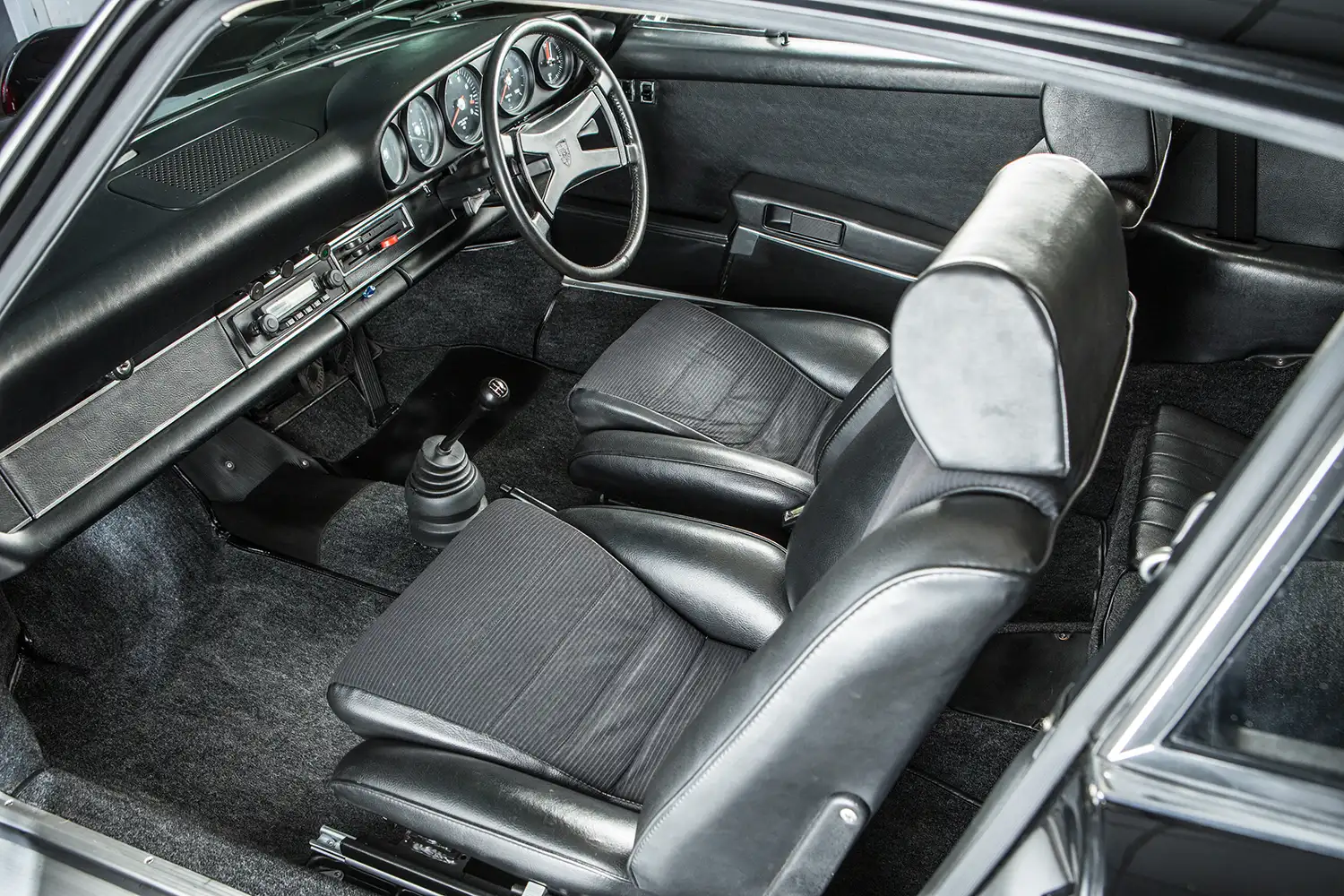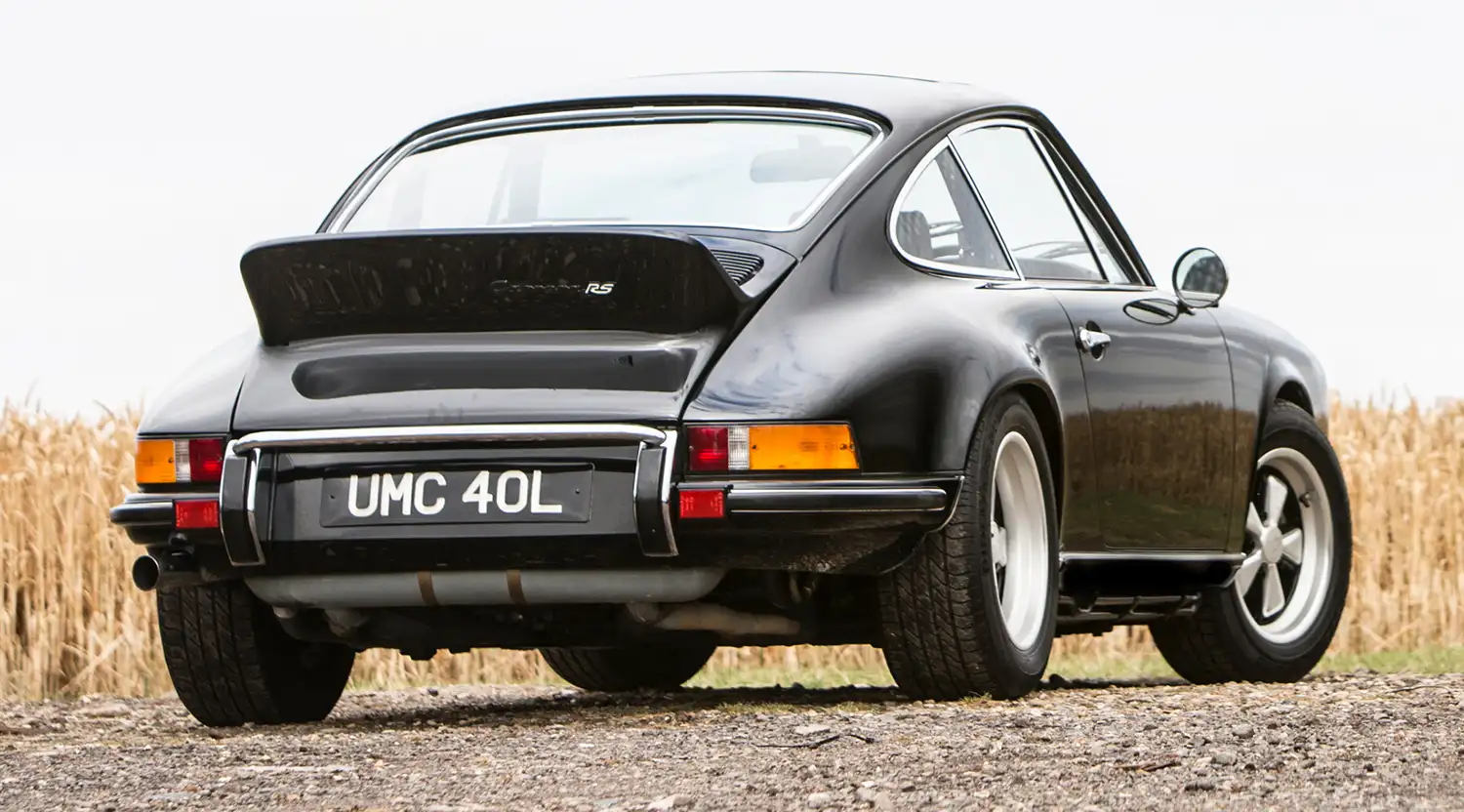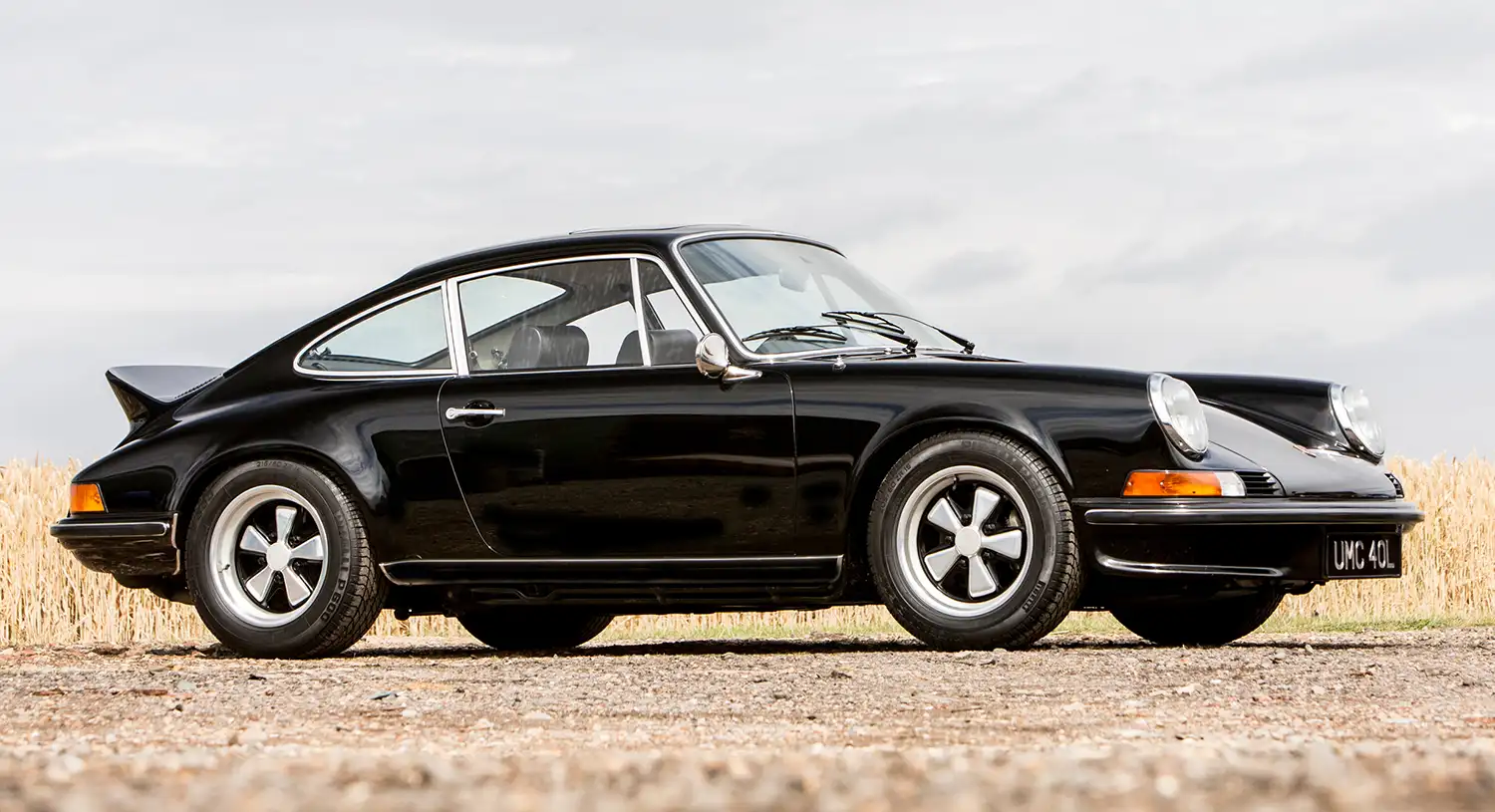
The 1973 Porsche 911 Carrera RS 2.7 is one of the most iconic and desirable models in Porsche’s storied history. Known for its distinctive “ducktail” spoiler and being the first-ever 911 specifically built for homologation purposes, this model was created to meet the requirements for Porsche’s entry into Group 3 racing. Today, it stands as a symbol of Porsche’s motorsport pedigree and timeless design.
This particular example, chassis “0990,” is one of just 1,308 built to the sought-after “M472” Touring specification, delivered new to the United Kingdom in April 1973. Finished in its factory-correct shade of Black over a Leatherette and Corduroy interior, it retains many of its original features, including an electric sliding sunroof, electric windows, front sports seats, and a rear bumper nudge bar. It remains in exceptional condition with its matching-numbers engine intact.
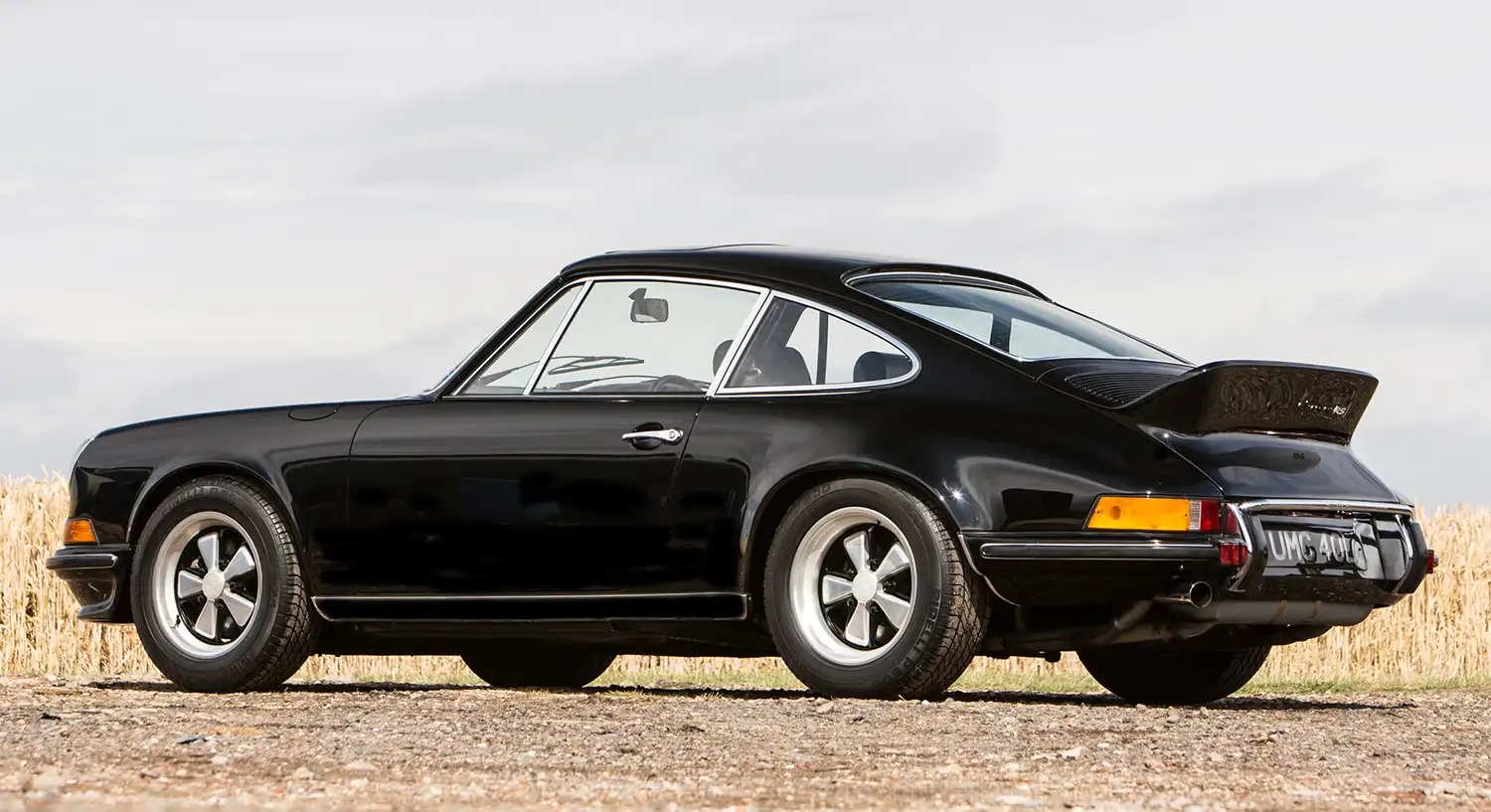
The car underwent a no-expense-spared, bare metal restoration in the early 1990s, handled by Porsche specialists in the UK. This comprehensive rebuild saw every mechanical component, including the engine, gearbox, and running gear, meticulously restored to original specifications. The car’s history file includes an extensive photo album detailing the process, showcasing the level of craftsmanship involved.
Since the restoration, this Porsche has been a consistent winner at concours events, earning accolades such as “1st in Class” and “Best RS Entered” at the 1993 Porsche National Concours. It’s also well-known within Porsche Club GB and has been a cherished part of the marque’s community, participating in notable events like Classics at the Castle, celebrating the 40th anniversary of the Carrera RS.
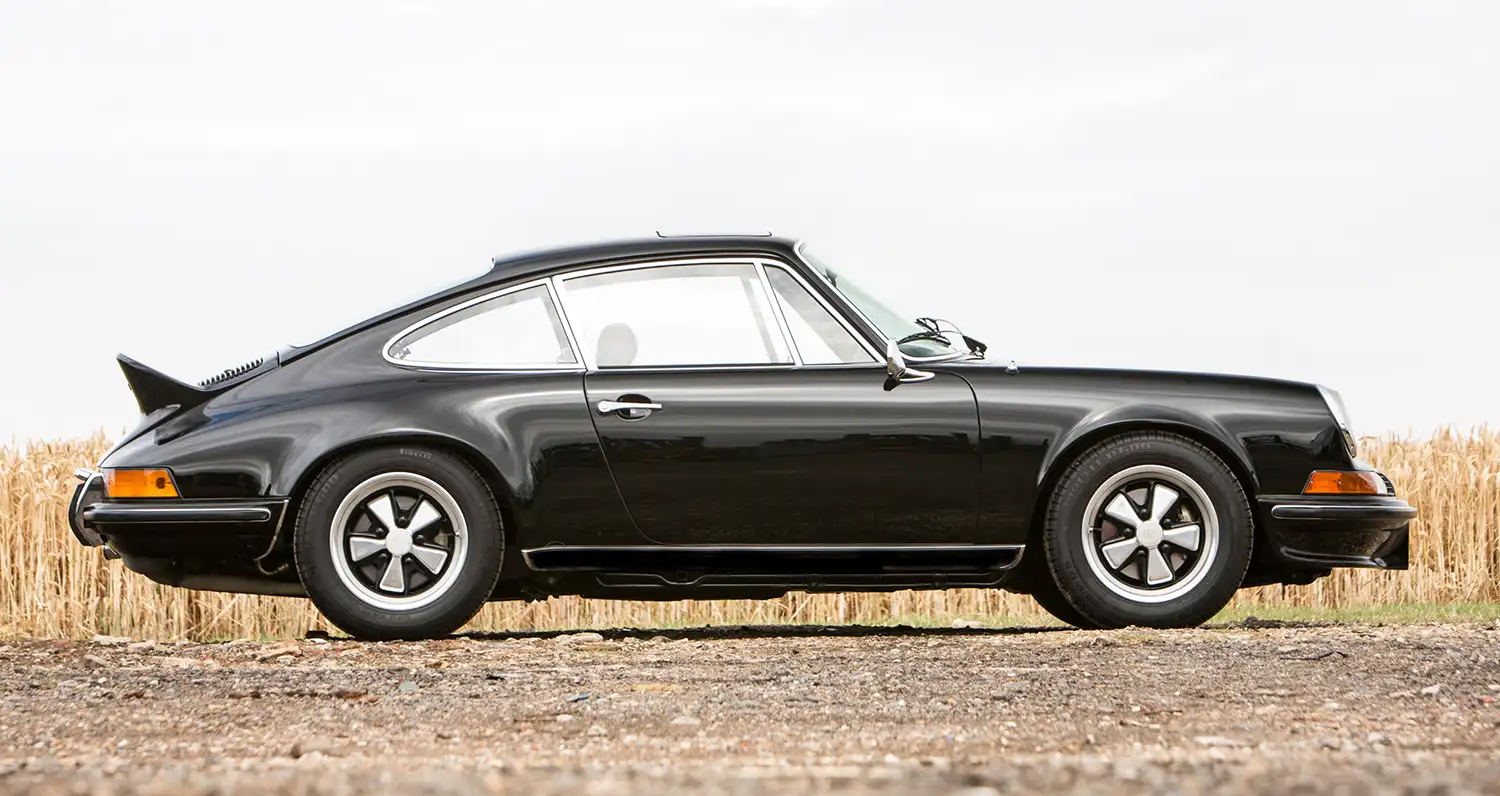
Offered for sale at £500,000 – £600,000, this 1973 Porsche 911 Carrera RS 2.7 Touring is an unmissable opportunity for any serious collector. A well-documented, restored, and concours-winning example, it holds a prestigious place in Porsche’s legendary lineup of homologation specials and remains a potent road car today.
Source: rmsothebys.com
This article was crafted with assistance from Chatgpt
